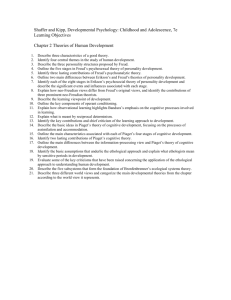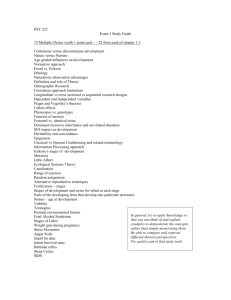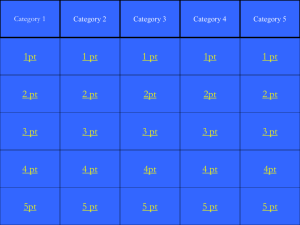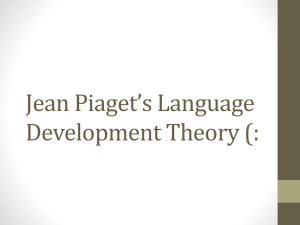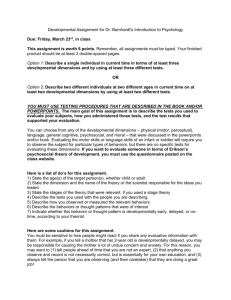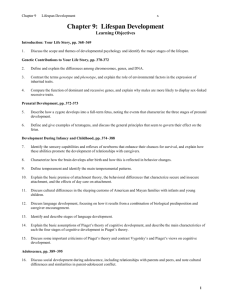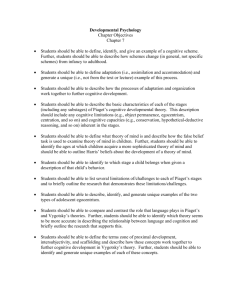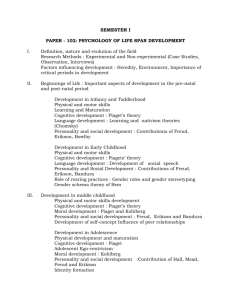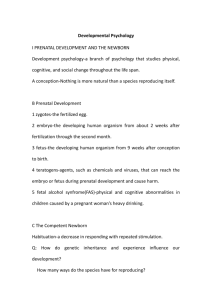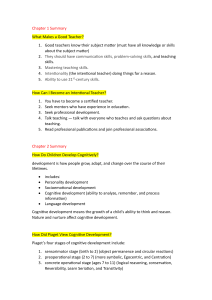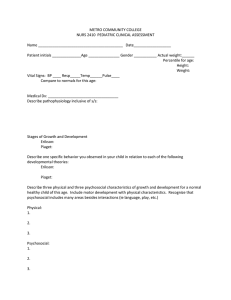Developmental Psychology – Information to be covered on Exam #1
advertisement
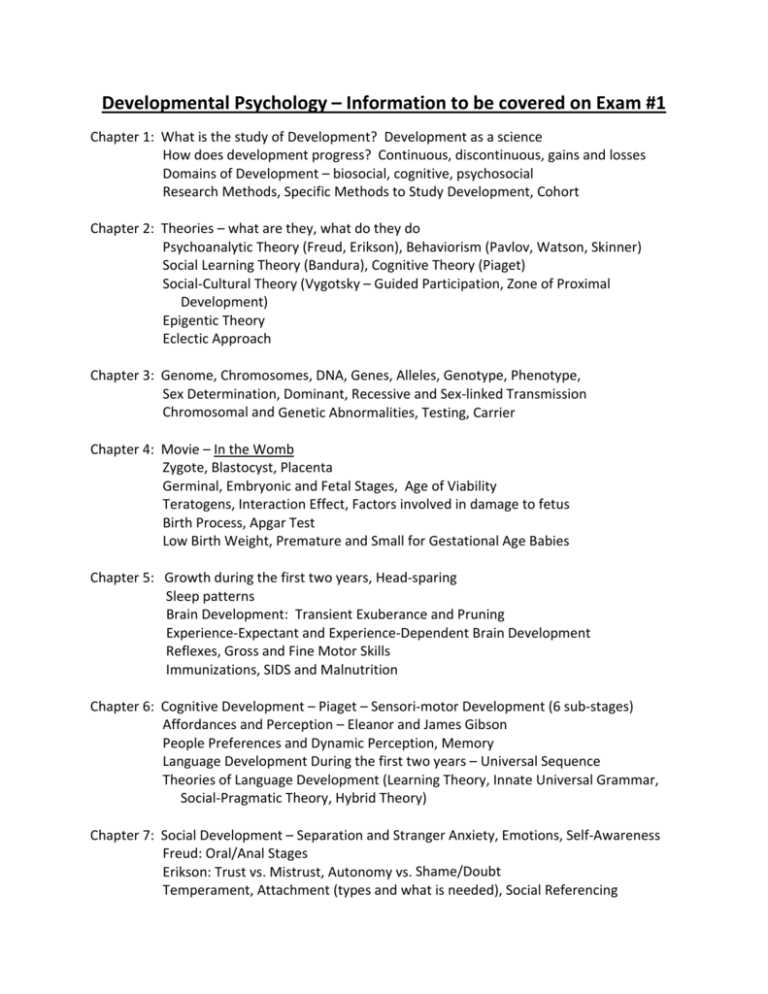
Developmental Psychology – Information to be covered on Exam #1 Chapter 1: What is the study of Development? Development as a science How does development progress? Continuous, discontinuous, gains and losses Domains of Development – biosocial, cognitive, psychosocial Research Methods, Specific Methods to Study Development, Cohort Chapter 2: Theories – what are they, what do they do Psychoanalytic Theory (Freud, Erikson), Behaviorism (Pavlov, Watson, Skinner) Social Learning Theory (Bandura), Cognitive Theory (Piaget) Social‐Cultural Theory (Vygotsky – Guided Participation, Zone of Proximal Development) Epigentic Theory Eclectic Approach Chapter 3: Genome, Chromosomes, DNA, Genes, Alleles, Genotype, Phenotype, Sex Determination, Dominant, Recessive and Sex‐linked Transmission Chromosomal and Genetic Abnormalities, Testing, Carrier Chapter 4: Movie – In the Womb Zygote, Blastocyst, Placenta Germinal, Embryonic and Fetal Stages, Age of Viability Teratogens, Interaction Effect, Factors involved in damage to fetus Birth Process, Apgar Test Low Birth Weight, Premature and Small for Gestational Age Babies Chapter 5: Growth during the first two years, Head‐sparing Sleep patterns Brain Development: Transient Exuberance and Pruning Experience‐Expectant and Experience‐Dependent Brain Development Reflexes, Gross and Fine Motor Skills Immunizations, SIDS and Malnutrition Chapter 6: Cognitive Development – Piaget – Sensori‐motor Development (6 sub‐stages) Affordances and Perception – Eleanor and James Gibson People Preferences and Dynamic Perception, Memory Language Development During the first two years – Universal Sequence Theories of Language Development (Learning Theory, Innate Universal Grammar, Social‐Pragmatic Theory, Hybrid Theory) Chapter 7: Social Development – Separation and Stranger Anxiety, Emotions, Self‐Awareness Freud: Oral/Anal Stages Erikson: Trust vs. Mistrust, Autonomy vs. Shame/Doubt Temperament, Attachment (types and what is needed), Social Referencing
